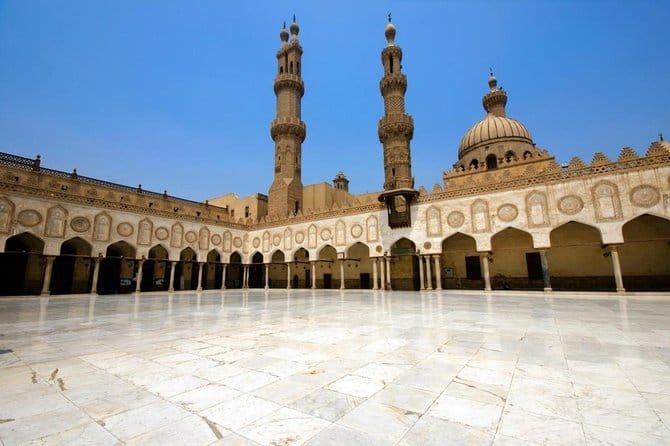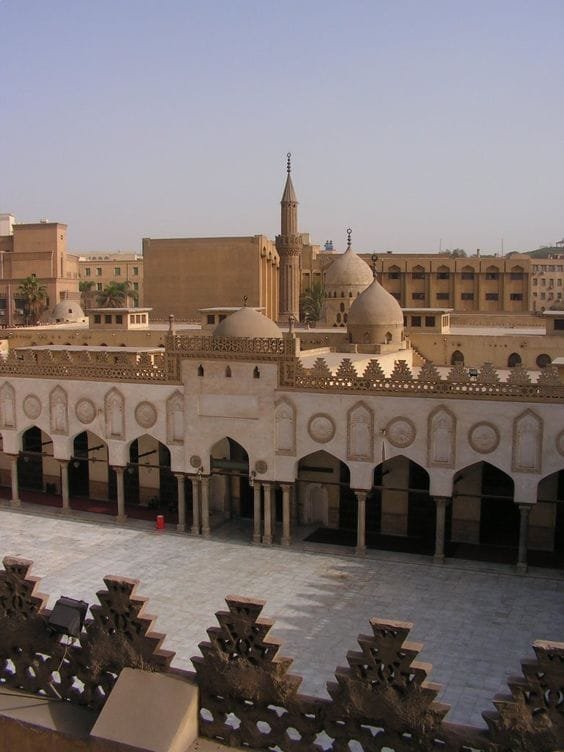Standing as a beacon of both spiritual devotion and intellectual enlightenment, the Al-Azhar Mosque in Cairo, Egypt, is one of the most significant landmarks in the Islamic world. Founded in 970 CE during the Fatimid Caliphate, it is not only one of the oldest mosques in Egypt but also a crucial center for Islamic education and scholarship. Over the centuries, Al-Azhar Mosque has grown to symbolize the deep-rooted Islamic heritage of Egypt, making its mark on the global stage.
Initially constructed as a place of worship, the mosque soon transformed into a prestigious academic institution, housing Al-Azhar University, the first university of its kind in the Muslim world. The institution has attracted scholars and students from all corners of the globe, establishing itself as a hub for Islamic jurisprudence, theology, and philosophy. Its influence has extended far beyond its architectural grandeur; it is a place where religious and intellectual discourse continues to thrive, shaping the direction of Islamic thought for over a thousand years.
The mosque’s historical, cultural, and architectural significance has cemented its status as a vital symbol of Islamic unity, tolerance, and learning. It remains not only a place of worship but also a center for shaping religious and political discourse in Egypt and the broader Muslim world. As we explore the rich history, architectural beauty, and global impact of the Al-Azhar Mosque, we uncover a legacy that continues to influence and inspire generations of Muslims worldwide.







